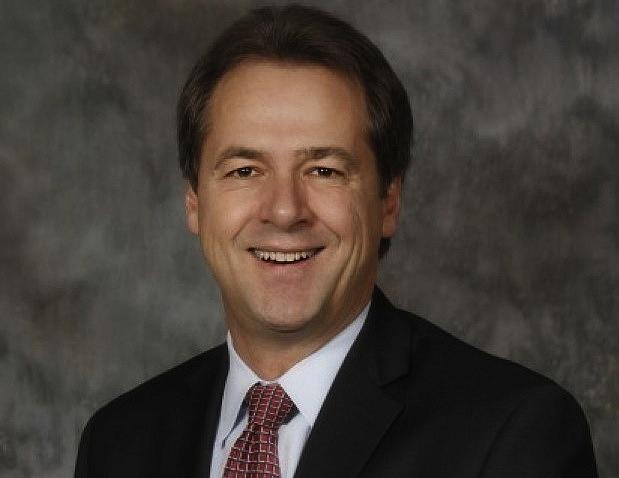Governor signs legislation creating statewide Suicide Review Team
Cindy Uken's series on suicide in Montana for the Billings Gazette got the attention of state policymakers, who are now beginning to make some changes.
Uken is a 2012 National Health Journalism Fellow. This article is part of a series examining the suicide epidemic in Montana. Other stories in this series include:
Keep condolences to suicide survivor simple, such as, 'I'm sorry for your loss'
Suicide victims' loved ones often suffer guilt, thinking 'If only I had ...'
Suicide survivor: 'There was really no help for me and no hope'
Teenage girl fatally shoots herself days before '08 school year begins
Before a suicide, a mother's lament: 'Why can't I fix this?'
Miles City school administrators tackle problem of suicide
Play designed to help youth feel comfortable discussing suicide, feelings of despair
Suicide is 2nd leading cause of death among Montana youth
Veterans twice as likely to commit suicide as civilians
Police officer: 'Ma'am, I found your husband'
Veteran: 'I just always hoped that I would be in that freak car accident'
Suicide rate among Montana's senior citizens outpaces national figure
Veteran: 'You're taught in the military that you don't ask for help'
Suicide survivor: 'There was a butcher knife in her chest. I just went berserk.'
LGBT youth at increased risk for suicide
Transgender male: 'I never associated with being female'
Former priest: 'I got the cue he's falling in love with me'
Lawmaker on state's suicide stats: 'What we're doing isn't good enough obviously'

Gov. Steve Bullock
For the next three years, Montana’s suicide epidemic will become the focus of a statewide panel of professionals who will study its causes and make recommendations to the governor to help prevent more deaths.
Gov. Steve Bullock has signed into law House Bill 583, which creates the Montana Suicide Review Team.
The panel, which will meet at least eight times a year, will be made up of professionals, including a psychiatrist, psychologist, clinical social worker, a member of the clergy, a physician assistant, a tribal health department representative and a representative of the U.S. Department of Veterans Affairs. Each will serve a three-year term.
The Montana Department of Public Health and Human Services will be required to produce a biennial suicide reduction plan and submit it to the Legislature. The plan must include specific activities to reduce the suicide rate; concrete targets for reducing the rate among various populations, including American Indians, veterans and youth; and measurable outcomes for all activities.
The law takes effect July 1 and is scheduled to terminate June 30, 2016. The team’s activities will be paid for with a $67,000 appropriation from the general fund in each year of the biennium.
“I want Montana to be No. 1 in a lot of areas, but this is not one of them,” Bullock told The Billings Gazette.
For more than three decades, Montana's rate of suicide has ranked in the top five states in the nation and is nearly twice the national average.
During 2010, at least 227 Montanans killed themselves. In 2011, the number dropped slightly to 225. In a state with about 1 million people, on average about 15 Montanans attempt suicide every day. That is approximately 5,500 documented suicide attempts each year.
Rep. Rob Cook, R-Conrad, sponsored the legislation, calling the Montana's suicide rate the state's dirty little secret. He said it is shameful that the problem has persisted for so long and so little has been done to understand why it occurs.
“We have ignored this calamity for far too long and I sincerely hope that this team begins to unravel Montana's fatal mystery,” Cook said.
Matt Kuntz, executive director of the Montana chapter of the National Alliance on Mental Illness, has long referred to the state’s suicide rate as a public health crisis. HB583 will help Montana systematically study completed suicides to get a better understanding of its causes and potential interventions, he said. A similar review is already conducted for fetal, infant, and child deaths to help guide those prevention efforts.
This will allow the state to identify suicide patterns and target the most effective means of prevention, Kuntz said.
Dr. Leonard Lantz, a Helena-based child, adolescent and adult psychiatrist, said the team that HB583 creates by itself is not the solution but a first step toward a real resolution — an effective, coordinated effort to reduce the state’s suicide rate.
The story was originally published in the Billings Gazette

